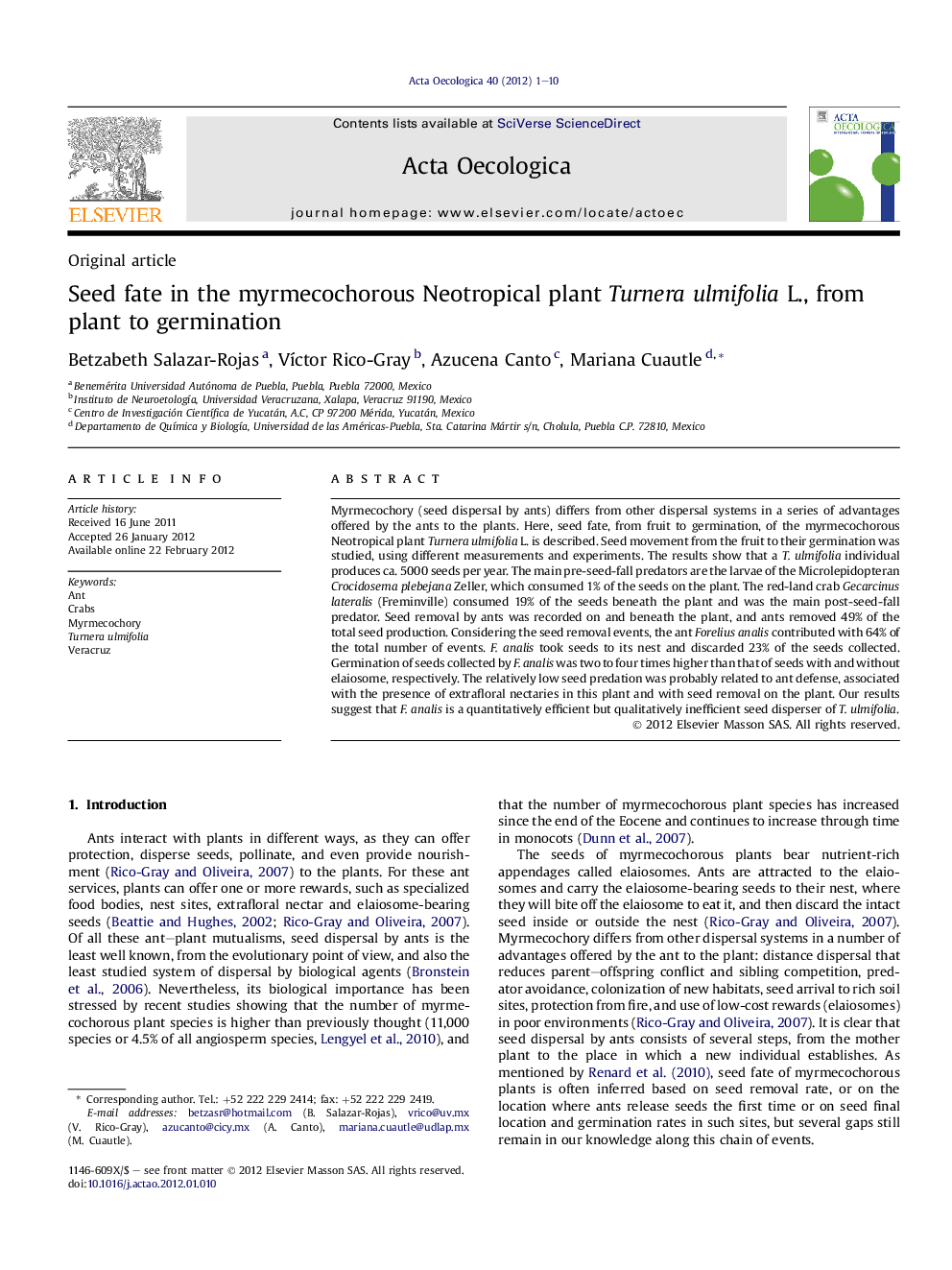| Article ID | Journal | Published Year | Pages | File Type |
|---|---|---|---|---|
| 4381188 | Acta Oecologica | 2012 | 10 Pages |
Myrmecochory (seed dispersal by ants) differs from other dispersal systems in a series of advantages offered by the ants to the plants. Here, seed fate, from fruit to germination, of the myrmecochorous Neotropical plant Turnera ulmifolia L. is described. Seed movement from the fruit to their germination was studied, using different measurements and experiments. The results show that a T. ulmifolia individual produces ca. 5000 seeds per year. The main pre-seed-fall predators are the larvae of the Microlepidopteran Crocidosema plebejana Zeller, which consumed 1% of the seeds on the plant. The red-land crab Gecarcinus lateralis (Freminville) consumed 19% of the seeds beneath the plant and was the main post-seed-fall predator. Seed removal by ants was recorded on and beneath the plant, and ants removed 49% of the total seed production. Considering the seed removal events, the ant Forelius analis contributed with 64% of the total number of events. F. analis took seeds to its nest and discarded 23% of the seeds collected. Germination of seeds collected by F. analis was two to four times higher than that of seeds with and without elaiosome, respectively. The relatively low seed predation was probably related to ant defense, associated with the presence of extrafloral nectaries in this plant and with seed removal on the plant. Our results suggest that F. analis is a quantitatively efficient but qualitatively inefficient seed disperser of T. ulmifolia.
► We describe seed fate of the myrmecochorous plant Turnera ulmifolia. ► Pre-seed-fall predators are the larvae of the Microlepidopteran Crocidosema plebejana. ► Post-seed-fall predators are red-land crabs Gecarcinus lateralis. ► 1% of the total seed production germinates when removed by the ant Forelius analis. ► F. analis is a quantitatively efficient but qualitatively inefficient seed disperser.
